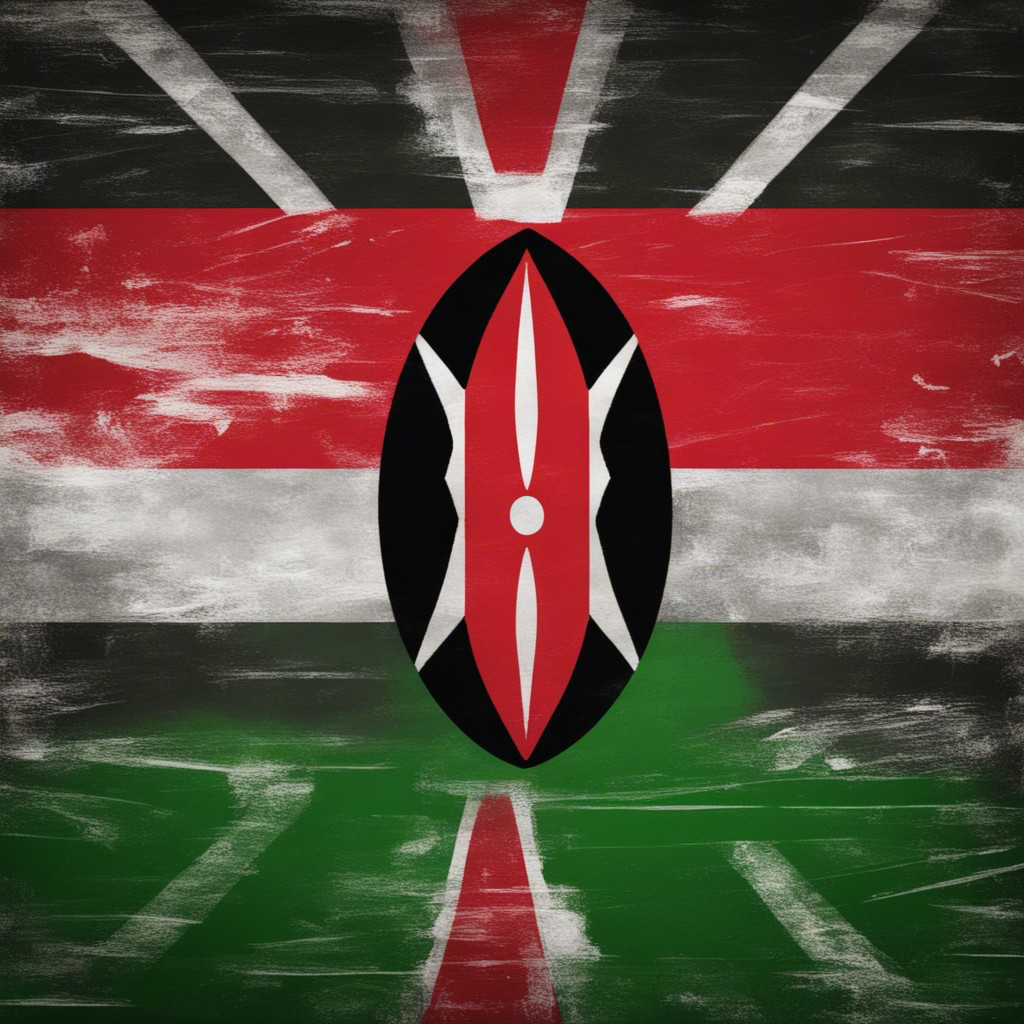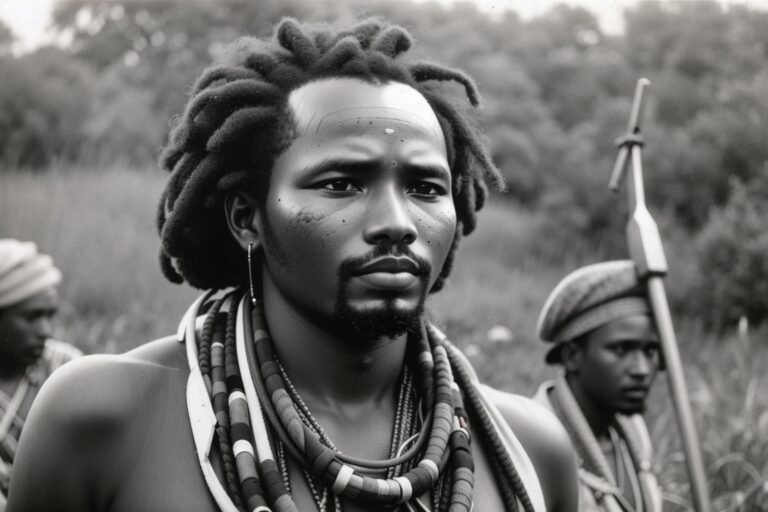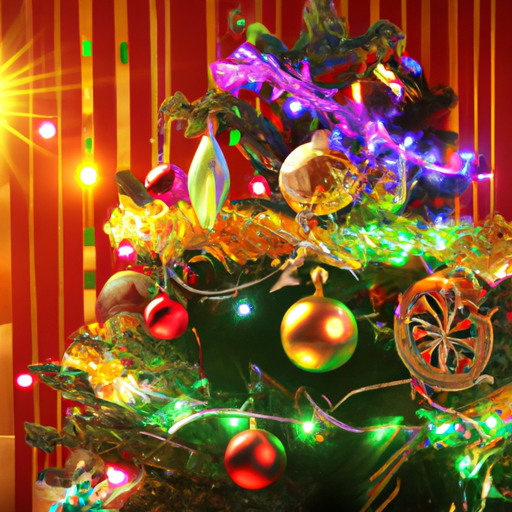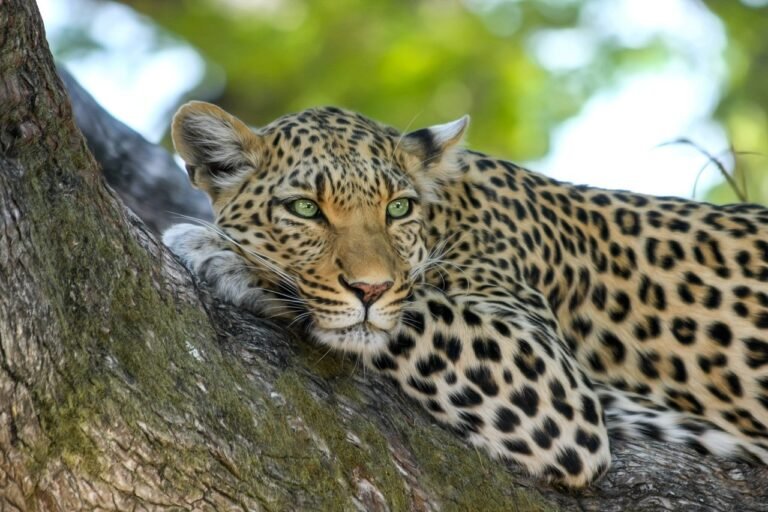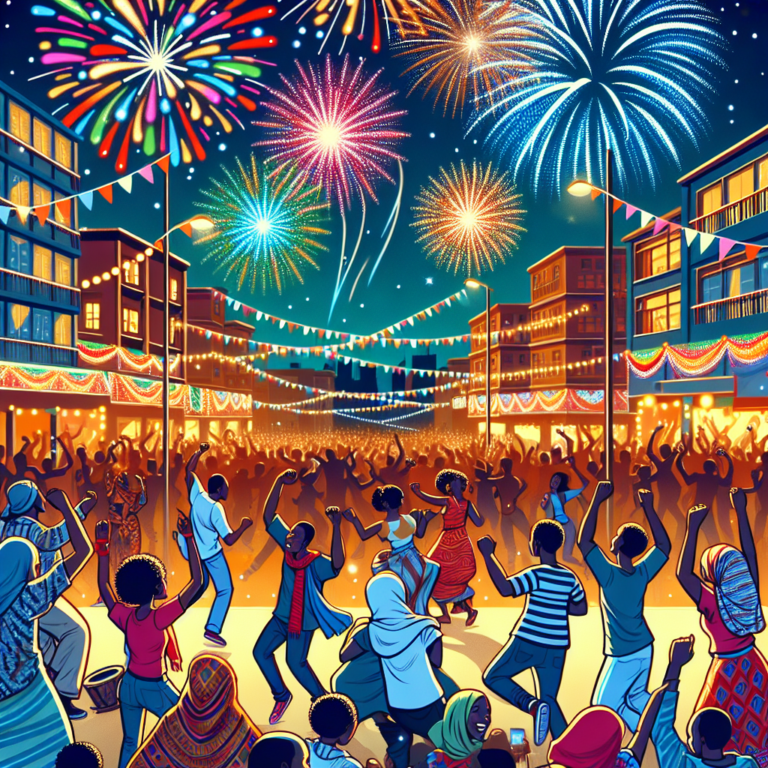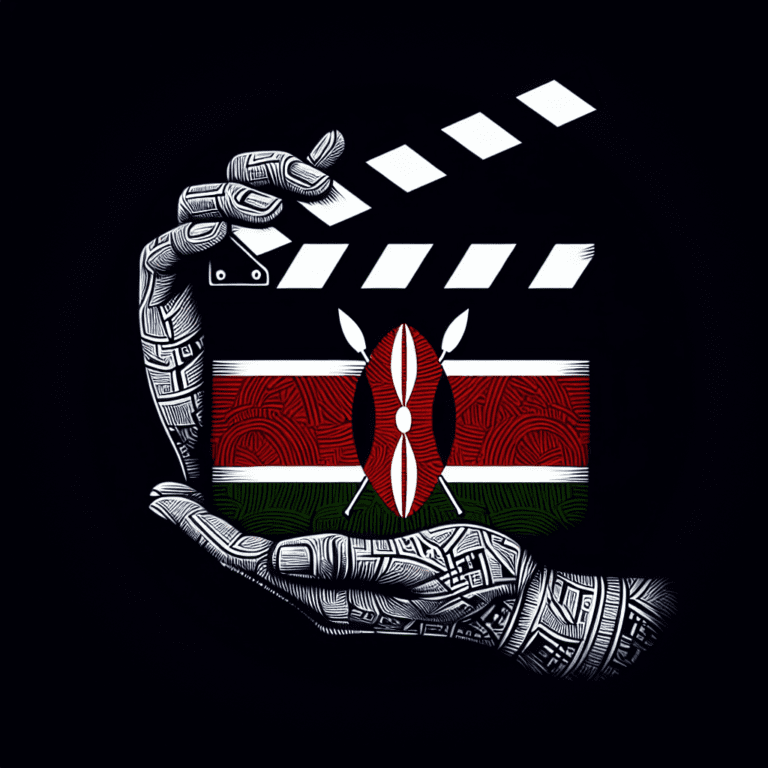How Do Kenyans Celebrate National Holidays?
Kenya is a vibrant and diverse country, known for its rich culture and traditions. When it comes to national holidays, Kenyans take the opportunity to express their patriotism and celebrate with enthusiasm. From colorful parades to traditional dances and feasts, the celebrations reflect the unity and pride of the nation. Whether it’s Independence Day or Mashujaa Day, Kenyans come together to honor their history, heroes, and the values that define their country. Join in the festivities as we explore the wonderful ways Kenyans celebrate their national holidays.
Overview of National Holidays in Kenya
National holidays in Kenya are special occasions that bring the entire nation together to celebrate and honor significant events, people, and achievements. These holidays play a crucial role in preserving the country’s cultural heritage, fostering national unity, and promoting patriotism. Kenyans eagerly look forward to these holidays as they provide an opportunity to relax, engage in festivities, and spend time with family and friends.
Types of national holidays
There are several types of national holidays in Kenya, ranging from historic and independence-related holidays to religious and cultural celebrations. Some holidays are fixed, while others are observed on different dates each year. The diversity of national holidays in Kenya reflects the country’s rich cultural tapestry and religious pluralism.
Significance of national holidays
National holidays hold great significance for Kenyans as they inspire a sense of pride and identity. These holidays provide an occasion to reflect on the country’s journey, honor national heroes, and celebrate its achievements. Furthermore, national holidays also serve as an opportunity to reinforce cultural values and traditions while bringing people together in celebration and solidarity.
Preparations for National Holidays
Kenyans begin their preparations for national holidays well in advance to ensure everything is in place for a memorable celebration. This involves various aspects such as home decoration, shopping for new clothes and gifts, and planning festive meals.
Decorating homes and public spaces
Homes and public spaces are adorned with colorful decorations to create a festive ambiance. Kenyans often decorate their houses with flags, banners, and traditional ornaments that reflect the theme of the holiday. Public spaces, such as parks and streets, are also beautifully decorated with lights, flowers, and artwork to evoke a sense of national pride.
Shopping for new clothes and gifts
Kenyans consider national holidays as an opportunity to dress up in new clothes. Traditional attire holds a special place during these celebrations, and people often wear garments that represent their cultural heritage. Additionally, shopping for gifts is a common practice during national holidays, as people exchange tokens of love and appreciation with their family and friends.
Planning festive meals
Food plays an essential role in celebrating national holidays in Kenya. Families and friends gather to share festive meals that are prepared with traditional ingredients and flavors. Popular dishes such as pilau, nyama choma, and ugali are often prepared, showcasing the diversity of Kenyan culinary traditions. Festive meals bring people together and create a sense of togetherness and joy during national holidays.
Traditional Festivities and Cultural Events
National holidays in Kenya are marked by vibrant festivities and cultural events that showcase the country’s rich heritage and traditions. These events vary depending on the holiday being celebrated but often include dances, music performances, folklore, storytelling, and religious ceremonies.
Dances and music performances
Traditional dances and music performances are an integral part of national holiday celebrations in Kenya. Different ethnic groups display their unique dance forms, accompanied by vibrant costumes and rhythmic melodies. These performances showcase the diversity of Kenyan culture and provide a platform to preserve and promote traditional art forms.
Folklore and storytelling
Folklore and storytelling play a significant role in national holidays, as they serve as a medium to pass down cultural knowledge and history from one generation to another. Elders share stories that reflect the country’s values, traditions, and significant historical events. These narratives captivate the audience and reinforce the importance of national heritage.
Religious ceremonies and processions
Religious ceremonies hold immense importance during certain national holidays, particularly those of religious significance such as Eid al-Fitr, Christmas, and Easter. Faith communities come together to offer prayers, attend religious services, and participate in processions that symbolize their devotion and commitment to their respective religions. These ceremonies foster unity and allow individuals to express their religious and cultural identities.
Popular National Holidays in Kenya
Kenya celebrates a variety of national holidays throughout the year. Some of the most widely observed and anticipated holidays include Independence Day, Mashujaa Day, Jamhuri Day, Labour Day, Madaraka Day, Eid al-Fitr, Christmas, Easter, and New Year’s Day.
Independence Day
Independence Day, celebrated on December 12th, commemorates the day when Kenya gained independence from British colonial rule in 1963. This is a highly significant holiday for Kenyans as it marks the dawn of a new era and symbolizes freedom, self-governance, and national pride.
Mashujaa Day
Mashujaa Day, observed on October 20th, is a day to honor and celebrate the heroes who have made significant contributions to Kenya’s development and progress. It is an opportunity to recognize individuals who have demonstrated bravery, leadership, and resilience in various fields, such as politics, sports, and social activism.
Jamhuri Day
Jamhuri Day, meaning “Republic Day,” is celebrated on December 12th each year. This holiday commemorates the day when Kenya became a republic in 1964, marking the country’s transition from a dominion to an independent republic. Jamhuri Day is a time to honor the nation’s sovereignty, democracy, and unity.
Labour Day
Labour Day is observed on May 1st and is a time to celebrate the achievements and contributions of workers in Kenya. This holiday provides an opportunity to acknowledge the importance of labor rights, social justice, and fair working conditions. Workers’ unions and organizations organize rallies and events to advocate for workers’ rights and welfare.
Madaraka Day
Madaraka Day, celebrated on June 1st, marks the day when Kenya attained self-governance from the British colonial administration in 1963. This holiday commemorates the freedom gained before full independence and signifies a significant milestone on Kenya’s path to becoming a sovereign nation.
Eid al-Fitr
Eid al-Fitr, also known as the “Festival of Breaking the Fast,” is a religious holiday celebrated by Muslim communities in Kenya and worldwide. It marks the end of Ramadan, a month of fasting and prayer. Muslims gather for morning prayers, exchange greetings, and share feasts with family, friends, and the less fortunate, spreading joy and compassion.
Christmas
Christmas is a widely celebrated holiday in Kenya, observed on December 25th each year. Christians commemorate the birth of Jesus Christ and attend church services, followed by festive gatherings with loved ones. Decorations, gift exchanges, and delicious meals are integral to Christmas celebrations in Kenya.
Easter
Easter is a significant religious holiday celebrated by Christians in Kenya and worldwide. It commemorates the resurrection of Jesus Christ from the dead. Kenyan Christians attend church services, engage in prayer and reflection, and participate in various cultural events and activities. Easter eggs symbolize new life and are exchanged as gifts.
New Year’s Day
New Year’s Day is celebrated on January 1st, marking the beginning of a new year. Kenyans usher in the New Year with joyous celebrations, fireworks, and parties. It is a time for reflection, goal-setting, and spending quality time with family and friends.
Community Celebrations and Gatherings
National holidays in Kenya bring communities together, fostering a sense of unity and camaraderie. These celebrations are marked by various community events, such as parades, sports tournaments, and carnivals.
Parades and marches
Parades and marches are common community events during national holidays in Kenya. Colorfully dressed participants march through the streets, accompanied by music bands and traditional dance groups. Parades are a visual spectacle that showcases cultural diversity and national pride.
Sports tournaments and competitions
Sports play a significant role in national holiday celebrations, with various tournaments and competitions organized to engage the community. Football matches, athletics competitions, and traditional games draw large crowds and promote healthy competition and camaraderie. These sporting events create an atmosphere of excitement and bring people of all ages together.
Carnivals and street parties
Carnivals and street parties are vibrant and energetic celebrations during national holidays. They feature live music, dance performances, food stalls, and cultural displays. Carnivals serve as a platform for artists, artisans, and entrepreneurs to showcase their talents and products, fostering a lively and festive spirit.
Holiday Traditions and Customs
Kenyans have a rich array of traditions and customs associated with national holidays. These customs reflect the country’s diverse cultural and religious backgrounds and are passed down from generation to generation.
Exchanging gifts and greetings
The tradition of exchanging gifts and greetings is an essential part of national holiday celebrations in Kenya. Family members, friends, and even strangers exchange gifts as a sign of love, appreciation, and goodwill. Greetings are an important part of the holiday experience, accompanied by warm wishes and blessings.
Wearing traditional attire
Wearing traditional attire during national holiday celebrations holds immense cultural significance. Kenyans take pride in their diverse ethnic backgrounds and showcase their heritage by donning traditional garments. Each ethnic group has its distinct attire, showcasing a unique combination of colors, patterns, and designs.
Cooking traditional dishes
National holidays are an occasion to indulge in traditional culinary delights that represent the cultural diversity of Kenya. Families prepare special dishes using age-old recipes, passed down through generations. These dishes often include staple foods like maize, beans, and vegetables, reflecting the rich agricultural heritage of the country.
Symbols and National Emblems
The symbols and national emblems of Kenya hold deep meaning and significance, representing the nation’s identity and values.
Kenyan flag and national anthem
The Kenyan flag consists of three horizontal stripes of black, red, and green, with a Maasai shield and crossed spears in the center. Each color holds a specific meaning, with black symbolizing the people, red representing the bloodshed during the struggle for independence, and green symbolizing the land’s natural resources.
The national anthem, “Ee Mungu Nguvu Yetu” (O God of All Creation), is sung with pride on national holidays. The anthem captures the spirit of unity, patriotism, and the aspirations of the Kenyan people.
Coat of arms and national motto
The coat of arms of Kenya is a depiction of two lions supporting a shield. The shield bears various symbols, including crossed spears, a traditional African shield, a rooster, and a maize plant. These symbols represent bravery, defense of freedom, and the importance of agriculture.
The national motto of Kenya, “Harambee,” means “pulling together” in Swahili. It signifies the spirit of unity, collaboration, and collective effort towards national development.
Importance of National Holidays
National holidays in Kenya play a pivotal role in the cultural, social, and historical fabric of the nation. They hold great importance for the people and the country as a whole.
Preserving cultural heritage
National holidays provide an opportunity to preserve and showcase Kenya’s rich cultural heritage. They celebrate the diversity of ethnic groups, languages, traditions, and art forms, promoting cultural exchange and understanding. These holidays play a vital role in safeguarding and passing down traditional knowledge, values, and practices to future generations.
Fostering national unity
National holidays serve as a unifying force, bringing together Kenyans from all walks of life. They bridge ethnic, religious, and regional divides, fostering a sense of shared identity, pride, and belonging. These celebrations remind citizens of their collective vision and inspire a sense of unity, enabling a cohesive society built on shared values and common goals.
Honoring national heroes and achievements
National holidays provide an opportunity to honor national heroes, past and present, who have contributed significantly to Kenya’s development and progress. These heroes are celebrated for their bravery, leadership, and sacrifice, and their stories inspire future generations. Additionally, national holidays also recognize the country’s achievements in various fields, such as education, sports, and arts, showcasing the nation’s resilience and ambition.
Government’s Role in National Holidays
The government plays a crucial role in organizing and facilitating national holidays in Kenya. It has a responsibility to ensure smooth and inclusive celebrations that reflect the aspirations and sentiments of the people.
Organizing official ceremonies and events
The government organizes official ceremonies and events on national holidays to commemorate significant occasions. These events often include flag-hoisting and wreath-laying ceremonies, cultural performances, speeches by national leaders, and the participation of dignitaries. The government ensures that these ceremonies are conducted with dignity, respect, and inclusivity.
Declaring public holidays
The government declares national holidays as public holidays, providing citizens with a designated day of rest and celebration. Public holidays give individuals an opportunity to connect with their families, engage in cultural activities, and participate in community events. These holidays contribute to the well-being and quality of life of the citizens, fostering a healthy work-life balance.
Promoting national pride and patriotism
The government has a role in promoting national pride and patriotism through national holidays. It encourages citizens to embrace and celebrate their national identity, instilling a sense of belonging and responsibility towards the nation. The government’s initiatives, such as educational campaigns, patriotic competitions, and public broadcasting, aim to strengthen the bond between the people and their country.
Conclusion
National holidays in Kenya are eagerly anticipated and celebrated with enthusiasm, joy, and a sense of unity. They reflect the cultural diversity and rich heritage of the nation while reinforcing national pride and patriotism. These holidays bring communities together, fostering a spirit of togetherness and appreciation for Kenya’s achievements, heroes, and aspirations. The government plays a vital role in organizing and facilitating these celebrations, ensuring their inclusivity and significance. National holidays hold immense importance in Kenyan society, as they preserve the nation’s cultural heritage, foster unity, and honor the achievements and aspirations of its people.

